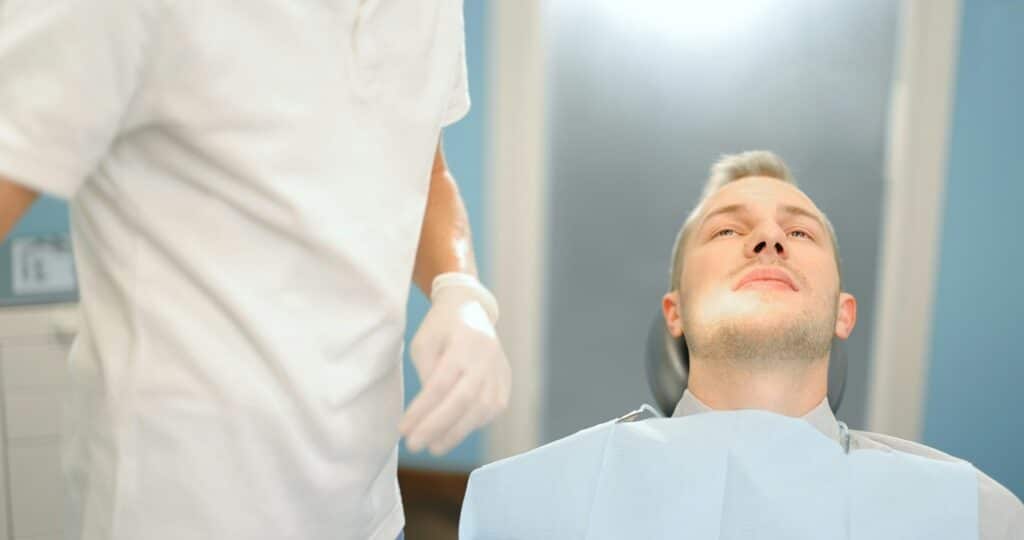Visiting the dentist can be unnerving, especially when it’s an emergency. Unfortunately, dental emergencies can happen when you least expect them, whether it’s a sharp toothache that comes out of nowhere or a chipped tooth from a playful afternoon. Knowing the importance of timely emergency dental care can ease fears and prevent further complications. When something unexpected happens with your teeth, quick action ensures better recovery.
Understanding what situations qualify as a dental emergency is crucial. Some cases, like a knocked-out tooth or severe pain, require immediate attention, while others might wait a bit. Recognizing these signs can help you decide when it’s necessary to visit a dental professional. This awareness not only alleviates pain quickly but also protects your overall oral health.
Recognizing a Dental Emergency
Determining whether you have a dental emergency means knowing the signs and symptoms. Here are some indicators of a dental emergency:
– Severe, persistent toothache that doesn’t improve with pain relief
– A cracked or broken tooth causing sharp pain
– A knocked-out tooth
– Swelling, which may indicate an infection
– Bleeding that doesn’t stop after an injury
These issues are more than just annoyances — they can signal a bigger problem needing timely care. For instance, a knocked-out tooth, if treated right away, might be saved. On the other hand, an abscess or infection must be addressed quickly to avoid spreading.
Dental emergencies come in various forms, and each requires a different approach. For example, a sharp, sudden toothache might mean serious decay or an infection, while a lost filling or crown may not require immediate attention but should be addressed soon. Recognizing the kind of emergency guides you on when to seek help and what care you might need.
Staying composed and following the right course of action during a dental crisis makes a world of difference. Having a plan can transform a hectic situation into something more manageable, preserving your smile and peace of mind.
Initial Steps to Take During a Dental Emergency
Facing a dental emergency can be stressful, but taking the right initial steps can make all the difference. First, don’t panic. Staying calm helps you think clearly and decide what to do next. If a tooth gets knocked out, try to find it and pick it up by the crown, avoiding the root. Rinse it gently with water if it’s dirty, but don’t scrub it. If possible, place the tooth back in its socket, but don’t force it. If that’s not an option, store it in a cup of milk to keep it moist until you get professional help.
For a severe toothache, rinse your mouth with warm water and gently floss to ensure there’s nothing lodged between the teeth. Avoid using aspirin or placing it against the gums as it can burn the tissue. Controlling pain and preventing swelling with a cold compress against your cheek can provide some relief. It’s important to contact a dental professional quickly to address the problem effectively.
What to Expect During Your Visit
Arriving at the dental clinic, the first step usually involves an assessment by the dental team. They’ll examine the issue, possibly taking X-rays to understand the full extent of the problem. Whether it’s a crack, abscess, or something else, getting an accurate diagnosis is key to effective treatment.
Various treatments may be done depending on the emergency. These may range from a simple filling to secure a tooth to more complex procedures like a root canal or extraction, aiming to relieve pain and restore oral health. The dental team will explain the process to ensure you’re comfortable and aware of what’s happening. They’ll also focus on making sure you feel little to no pain during any procedure.
Aftercare and Follow-Up
Once the immediate issue is resolved, you’ll receive instructions for aftercare, such as keeping the area clean and what types of food to avoid while healing. Following these guidelines helps prevent further complications. Follow-up appointments might be recommended to ensure the problem is fully taken care of and healing properly.
Preventing future dental emergencies involves regular dental visits and maintaining good oral hygiene. Brush and floss regularly, wear a mouth guard in sports, and avoid using teeth to cut or open objects. These simple habits significantly reduce the risk of surprise dental issues.
Finding Trustworthy Emergency Dental Care
When selecting emergency dental care, look for qualities like reputation and experience. Check for clinics with flexible hours to accommodate sudden emergencies. Word-of-mouth recommendations and online reviews can also help identify reliable care providers in your area, such as Pickering.
Ensuring Your Family’s Oral Health
Ensuring your family’s oral health includes having dependable dental services available during emergencies. This proactive approach not only manages unexpected events but keeps your family protected, fostering healthy habits and preventing bigger issues down the line. Regular check-ups build a strong foundation for oral health, allowing immediate attention when emergencies do arise.
Maintaining oral health can be stressful, especially during unexpected emergencies. It’s reassuring to know there’s a solution nearby. For more details about how Pickering Dental Services can help when you face unexpected dental issues, explore our emergency dental care options in Pickering. Trust in our team’s expertise to provide the care you need when it matters most.



